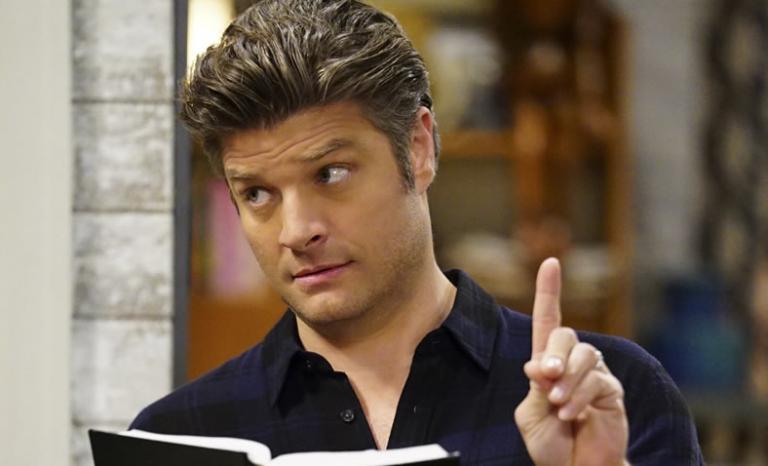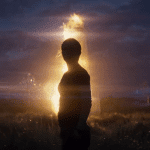
Asay: You can see that dynamic in play when Leslie’s mom comes to visit in an early episode. Her mom seems like she’s a pretty hardcore atheist, and she thinks Chip has lost his mind. And Leslie’s in the middle of the two of them, trying to make peace with these two people whom she dearly loves.
Walsh: It’s also important that Leslie recognizes the difference that [following the Bible has] made in Chip … because she wants him better as well. She wants him to be a better husband and father and everything else, and if this is how he’s going about it, she wants to be supportive.
It was important not to make the mom character a villain, either. But she is coming at it from a “gotcha” standpoint, one of the things that bums people out about these kinds of discussions. The mom is really trying to trap Chip, as opposed to just talking with him, and hearing what he has to say. My goal was not really to vilify any of the sides, but you just see the differences in atheism between Leslie, who is open-minded and wants to learn, and her mom, who is much more, “I know more than you.” That’s not the way to go about any of those discussions, I don’t think.
Asay: Given the show’s overt religiosity, was this show a tough sell to the network?
Walsh: It was an easier sell than I expected, but I think it was because I had just prepared the pitch so much, because I knew that it would be a tricky issue. To my knowledge, there hasn’t been a religious sitcom, at least in my lifetime. … I just went in and explained that 84% of the world aligns itself with a faith, with a religion of some kind. And so often, entertainment for people of faith—religious entertainment—is often very somber and solemn. And … there’s a huge fear among people of religion that [any sitcom dealing with religion] will be mocking,
I think a big reason that CBS took the gamble on the show was just me saying, I do not wish to mock faith. I have a great deal of respect for faith, I was raised very strictly catholic and all of my friends were extremely religious, and I think there’s a real desire for entertainment about it that isn’t so furious, that can show a lighter side to it without ever mocking or making fun. The only time you ever hear about religion is Bill Maher saying terrible things about people of faith, or on the flip side, [explicitly religious entertainment] that is maybe a little exclusionary to people who are not of faith—shows that appeal only to people with that exact same viewpoint. So my goal was to kind of bridge that gap and to hopefully serve all these people looking for entertainment about their lives, you know, and are not finding it. CBS was very excited and very on board, and you know, cool with whatever topic we wanted to get into. It was actually a very good experience.













